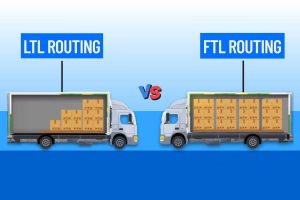Retaining top talent is one of the main focuses of HR teams. However, with the rise of remote work, candidate pools have suddenly increased, which is not necessarily a good thing.
For one thing, the focus is lost. For another, candidates demanding lower wages are typically prioritized. The practices lead to decreased standards and an increased use of AI for candidate selection, within the two parameters mentioned above.
The result? A mishmash of employees, whom businesses are trying to align by deploying diversity and inclusion (D&I) practices. It may seem idyllic, but it doesn’t work long-term. For one thing, people with fundamentally different values cannot compromise down the road. For another, money isn’t the main driving factor of engagement anymore.
Reimagining Inclusive Hiring
That’s why the matter of inclusive hiring should be viewed from a different perspective: HR teams should simply look for candidates genuinely interested in the role and company culture. The latter is the keyword.
Rather than training talent for ‘alignment,’ HR staff should focus on selecting the candidates who have this propensity to begin with. Keeping that in mind, we’ll list some critical traits in new hires that should fit into the bigger picture.
Adaptability
The ability to adapt to new situations and any challenges that may come along is absolutely critical. Identifying candidates who possess this aptitude in HR terms should be the first priority. Adaptability doesn’t comprise just surviving in an ever-changing modern workplace. It actually means thriving in any kind of situation that may arise.
Now, add to the mixture the plethora of factors affecting the modern workplace technological advancements, shifting market trends, and global uncertainties, to name a few, and try to imagine a stress-free, merry-go-lucky workplace that manages to balance them out.
It’s a massive undertaking. To attain satisfactory levels of adaptability, businesses need to factor in all the main challenges of the fast-paced world and offer a suitable resolution that will result in eliminating stress and burnout. Multitasking and resilience training are not the approach that will help businesses keep their workforce in the long run.
However, some practices have thankfully, presented themselves. One good idea is to introduce flexible work models and flexible schedules. With the rise of digital nomadism, offering flexible contracts is also recommended.
Effective Communication
Effective communication is one of the most important traits for everyone. The practice extends beyond the workplace, as people need to cope with many taxing challenges wherever they go. However, being an open communicator when surrounded by friends doesn’t equal the same approach when surrounded by colleagues. That’s why the HR team should juxtapose the skills in different scenarios to assess potential collaboration challenges.
It goes without saying that conflicts are certain to arise at one point or another. However, the ability to solve potential issues in a mature manner is a skill not many people possess. Consequently, the HR team should look for open communicators with a degree of maturity to match it.
Problem-solving abilities play an important role in the equation. While moderation isn’t uncommon in the modern workplace, it is required for employees to have the will and the skill to overcome communication breakdowns and conflicting viewpoints.
Aptitude for Teamwork
If we were to use one adjective to describe the modern workplace, it would be ‘collaborative.’ Teamwork is, therefore, critical. Contrary to popular belief, effective teamwork doesn’t imply task-sharing alone. Its main aim should be leveraging the collective strength of a team.
Also, it’s the very department where modern workplace tendencies get their chance to shine. D&I, for starters. A team that cherishes diverse viewpoints can, given the right conditions, result in a wealth of ideas and initiatives to benefit everyone. Optimally, an environment where synergistic effects can develop and outshine individual achievements should be achieved.
Such an environment is certain to uphold knowledge sharing and employee satisfaction, and also increase adaptability levels of team members.
Problem-Solving
As a rule, the HR team actively seeks candidates who demonstrate strong problem-solving skills, as hectic workplaces are mercilessly bound to strict deadlines. Yes, this translates into thriving under pressure, which is an unreasonable thing to ask.
That’s why another perspective is in order: why not set up standard procedures for identifying and analyzing issues, coupled with team building sessions where every team member would get a say? The practice is common in startups, which have managed to disrupt entire industries in their wake. Obviously, they’re doing something right since traditional businesses are frantic to keep up.
Instead, why not come up with their own strategies rooted in best practices?
Resilience
Thriving in the face of challenges is a beautiful dream all HR experts typically experience. The ability to overcome adversity is more realistic, so let’s say that’s what resilience is. Generally speaking, different people have different thresholds when it comes to how much stress and burnout they can handle. Still, no stress and no burnout is a better approach.
Stress management and adaptability play a crucial role in this regard. While some businesses stage mental health sessions and, generally, any activity that can help employees unwind, a better approach would be to create a workplace where stress and burnout don’t get a chance to manifest.
Is it possible?
Of course. Employee well-being is a recent trend that has manifested in different incarnations. The best approach would be to rely on employee feedback and come up with best practices. People are different, after all.
Flexibility
The previous trait naturally leads us to flexibility. Or, rather, the ability to adjust to changing circumstances and embrace new responsibilities. Since ‘responsibility’ isn’t the best word to attract capable new hires, it should be translated into credibility and appropriate rewards.
Higher levels of responsibility must be met with recognition to address high turnover rates, among other workplace issues. Specific training programs can help employees advance. Typical topics may include agile responses, creative problem-solving, and soft skill training.
Key Takeaways
So, can the HR team hope to pinpoint candidates who are flexible, love burnout, are adaptable no matter the circumstances, can excel at problem-solving even when the world is coming down, and can communicate effectively with narrow-minded people?
That’s a tall order, so redefinition is in order. Basically, look for open-minded people with a set of suitable soft skills who love solving challenges creatively. Oh, and make sure to recognize their efforts and offer career advancement plans.












